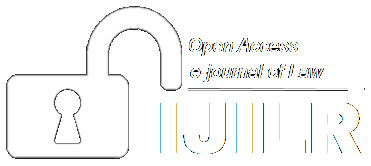Jurisdictional Aspect in E-Commerce Transaction: Indian Perspective
Maharashtra National Law University, Nagpur, India
Volume II – Issue I, 2021
Maturing of internet has removed the geographical constrains, making whole world a single market for every consumer. E-commerce has proven to be a reward for every consumer, and has acted as a bridge for movement of goods and services from the place of profusion to the place of deficit. Ensuring maximum profit for the produced goods, E-commerce has proven to be beneficial for producers, leading to efficient utilization of resources. However, the merits are not enough to hide the defects of this budding platform. Transactions done on internet promote privacy, which is used by the fraudsters as a tool to remain anonymous and perform fake dealings, which hamper the interest of general parties. The frustration for parties increase when they become more vulnerable while protecting their interest due to several issues such as dispute in respect of the law applicable, period of limitation for raising claims, jurisdiction of local court to entertaining such disputes etc. Countries have attempted to come together and take necessary steps to protect the interest of parties involved in cyber transactions and to overcome the issues, but several questions such as jurisdiction of courts in Cyberspace still remains question of debate. Judiciary of different countries, in order to prove its supremacy, laid down several tests and doctrines, which brings the dispute within their ambit. The present paper is an attempt to analyse the approach of Indian courts and tests laid down by higher judiciary as to when courts in India have the jurisdiction to decide the dispute, in case no specific jurisdiction is provided in the contract, and whether such tests are in pursuance of the international standards. In addition to this, papers deals with the advancements required in current scenario to create a systemized and beneficial arrangement for the aggrieved.
